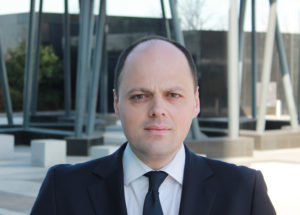TTR highlights Emilio Prieto’s viewpoint in regard to M&A deals in the post Covid-19 era.
As Spain approaches the 10-week mark since the royal decree was issued declaring a state of emergency on 11 March, the country has begun tiptoeing back to normalcy, or what even the government describes as the “new normal”, with a phased approach to the easing of restrictions on business activities and movement. In phase one, which began 11 May, family members and friends are permitted to gather in groups of up to 10 persons in homes, open-air restaurants and bars, with a limit set at 50% of the normal maximum occupancy. In phase 2, which had a provisional start date of Monday, 25 May, family members will be permitted to visit their relatives in old age homes, one at a time, provided there are no Covid-19 infections among the residents. The limit on the number of persons permitted to congregate will increase to 15 and patrons will be able to sit inside restaurants and bars for table service. Phase 3 will begin on 8 June, at the earliest, pending continued improvement in the health situation, with the government determining the pace of advancement from one phase to the next independently for each autonomous community. Once in phase three, protocols for workers to be reincorporated into the workplace will be implemented and patrons will be permitted to stand in bars once again. Travel beyond the province of residence will only be permitted after 22 June, at the earliest, and only to other regions of Spain that are in the same phase in the resumption of normal business activities.
Things are slightly better now, commented ECIJA Partner Emilio Prieto. “From the public health perspective, I believe the worst has passed. From an economic standpoint, however, things will be very tough for Spain,” he said. In the tourism and hospitality industry, for example, which represents nearly 15% of Spain’s GDP, 2020 is a lost year, said Prieto, and 2021 will also be very difficult. “For the restaurant industry, where we have seen a lot of investment in recent years, the blow has obviously been nothing less than colossal,” he said. To make things worse, the new social distancing norms, which will continue to be enforced post-lockdown, will make several businesses simply inoperable, he added. “These are businesses that normally require a minimum occupancy rate of around 80% to remain viable; the owners of these establishments already know this is out of the question,” Prieto said.
The new normal will look a lot different where the workplace environment is concerned, however, Prieto said. “The only thing we can be absolutely certain of, in the middle of all this anxiety and confusion, is that remote working is here to stay,” Prieto said. “Why should a company pay for a fivestory office in the center of Madrid when it can accommodate a portion of its employees in three floors and have the rest working remotely from home?” Prieto said. These remote workers will not only benefit from a much better work-family balance, but the cost savings involved are staggering, Prieto noted. “Some of our international clients are already moving in that direction,” Prieto said. “They have renegotiated rent prices and are now planning to sublet part of their space to other tenants and probably vacate part of the total area at the end of their contracts,” he said. Real estate will, no doubt, suffer as a result, particularly commercial space and corporate offices, Prieto noted. Given the continuing uncertainty, it’s impossible to make foolproof macroeconomic projections for the close of 2020, but almost all ththe indications suggest a fall in GDP of between 7% and 12%, Prieto said. “So the question, really, seems to be, will things be very bad or simply disastrous?” The key issue now is whether or not there will be a recovery in 2021, said Prieto. In Spain, a country heavily dependent on consumption to drive the economy, there will be economic sectors that suffer tremendously, he said. ”
M&A Outlook
Multinational companies with stronger financial firepower, whether based in Spain, the EU or the US, will move to acquire target companies that have been too expensive to buy, provided there is no second wave of infections, predicted Écija Partner Emilio Prieto. Though many e-commerce companies have proven their resilience in recent months, the segment will also undergo a purge, Prieto said. Investors and strategic buyers will pay big money for a select number of e-commerce companies that effectively bring high added value, but traditional e-commerce will suffer in the current crisis, he said. “Everything related to data management and artificial intelligence, on the other hand, is tremendously appreciated these days,” he added.
“Large companies right now are looking to buy either e-commerce companies that are vertical players in very specific sectors or tech companies that can bring concrete added value to well-established e-commerce players,” he said.
Private Equity
Transactions led by private equity funds in Spain are down 57% by volume and 90% by aggregate value YTD over the same period in 2019, according to TTR data. Notwithstanding the large amount of cash among private equity funds, financial investors face two big challenges, Écija Partner Emilio Prieto said. On the one hand, all of them are focused on managing their own portfolios, and some of their portfolio companies are highly contaminated because of their exposure to retail, he noted. On the other hand, private equity funds face strong competition from large corporates, which are typically willing to pay more for target companies.
Prieto said there was little conformity to the outlook he was privy to among private equity funds he works with between Western Europe and the Middle East. Some are very gloomy and predict an inevitable calamitous economic period through 2021, he said, while others are confident there will be a bounce-back next year and that things will clearly improve because the root of this crisis is extrinsic. “It is all still very disorientating,” Prieto said.






